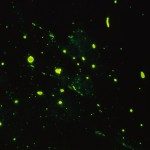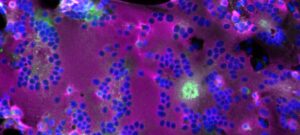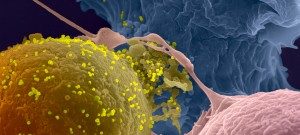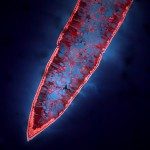Florence Larrous, Research Engineer in “Dynamic of Lyssavirus and adaptation to host” unit is involved in public health activities for animal and human rabies diagnosis but also in several research topics. She is responsible for the technical and scientific co-supervision of many trainees (master, phD students…). Her thesis supported in September 2013 focused on the role of Lyssavirus matrix protein and phosphoprotein in the innate immunity and efficacy of the replication complex.
Research topics:
Understanding how the viral matrix and phosphoprotein modulate the viral-host interplay and in particular the innate immune response.
Identification of viral molecular drivers of replication and transcription efficiency: how mutations of rabies phosphoprotein affect replication complex activity and induce emergence of new viral population
Develop new inhibitors of rabies infection: description of new molecules targeting the replication complex of lyssaviruses or more largely the replication of Mononegavirales.
Decipher the Mononegavirales capping machinery by characterizing the structure and the function of capping enzymes (PRNTase, N7- and 2’O-MTases).
Identification of compounds blocking the MTase activity leading to the discovery of a viral strategy that links transcription to immune evasion.
Development of a novel combined prophylactic/therapeutic approach for rabies





